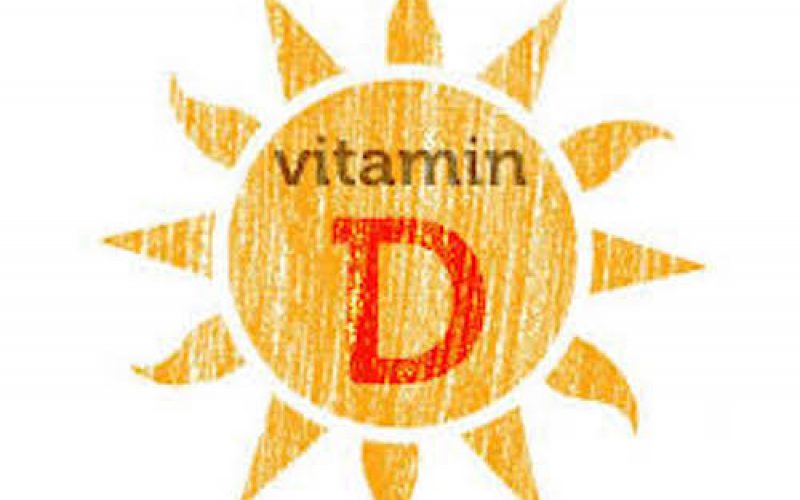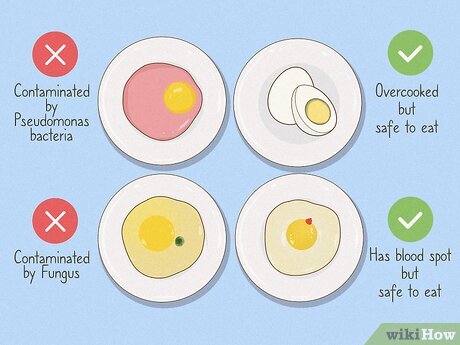Vitamin D: Your Ally for Strong Bones, Sharp Eyes, and More
By: Saika J
Vitamin D, often nicknamed the “sunshine vitamin,” isn’t just another dietary component. It’s a powerhouse nutrient weaving its magic throughout our bodies, influencing everything from bone strength to eye health and even our mood. Unlike most vitamins we obtain solely from food, our bodies possess the remarkable ability to synthesize Vitamin D when exposed to sunlight.
Harnessing the Sun’s Power: Vitamin D Production
Imagine sunlight as a key that unlocks a treasure chest of health benefits within us. When ultraviolet B (UVB) rays from the sun come into contact with our skin, they trigger the production of vitamin D. This process involves converting a precursor molecule in our skin into a usable form. The liver and kidneys then take over, further processing this newly synthesized vitamin D to create its active form, ready to be utilized by various bodily systems.
The Skeletons We Build: Vitamin D and Bone Health
One of Vitamin D’s most well-known roles lies in promoting strong bones. It acts as a silent conductor, ensuring optimal calcium and phosphorus absorption from our diet. These minerals are the building blocks for healthy bones, and without sufficient Vitamin D, our bodies struggle to utilize them effectively. This deficiency can lead to a cascade of problems, particularly in children and adults.
- Childhood Rickets: This condition, characterized by softened and weakened bones, can cause skeletal deformities and pain. In severe cases, it can even hinder growth and development.
- Adult Osteomalacia: This is the adult counterpart of rickets, causing bone pain, fractures, and decreased bone density.
Beyond Bones: Vitamin D’s Impact on Eye Health
Our eyes, those magnificent windows to the world, also heavily rely on the benefits of Vitamin D. Studies have revealed a fascinating connection between Vitamin D deficiency and various eye conditions:
- Dry Eye Syndrome: This uncomfortable condition occurs when the eyes struggle to produce enough tears or lack the proper tear quality to stay lubricated. Vitamin D deficiency may increase the risk of developing dry eye syndrome.
- Age-Related Macular Degeneration (AMD): AMD is a leading cause of vision loss in older adults, affecting the macula, the central part of the retina responsible for sharp, central vision. Research suggests that low Vitamin D levels may be associated with an increased risk of AMD.
- Reduced Immune Function: Vitamin D plays a crucial role in regulating the immune system. Deficiency can compromise the eye’s immune response, making it more susceptible to infections and inflammation.
- Increased Risk of Glaucoma: Glaucoma is a group of eye diseases that damage the optic nerve, potentially leading to vision loss. Emerging evidence suggests a link between Vitamin D deficiency and an increased risk of developing glaucoma.
- Diabetic Retinopathy: This complication of diabetes damages blood vessels in the retina, potentially leading to vision impairment or blindness. Studies have shown a possible link between Vitamin D deficiency and an increased risk of diabetic retinopathy.
- Inflammation and Oxidative Stress: Vitamin D deficiency may contribute to increased inflammation and oxidative stress within the eye. These factors can damage ocular tissues and contribute to various eye disorders.
Maintaining adequate Vitamin D levels becomes crucial for protecting our precious eyesight.
Fueling Your Sunshine Vitamin Needs: Diet and Sunlight
While sunlight remains the primary source of Vitamin D for many, dietary options can also contribute:
- Fatty Fish: Salmon, tuna, and mackerel are excellent sources of Vitamin D.
- Egg Yolks: These bright yellow centers contain a decent amount of Vitamin D.
- Fortified Foods: Milk, cereals, and some plant-based milks are often fortified with Vitamin D, making them valuable dietary sources.
Sun Safety: Balancing Benefits and Risks
While harnessing the sun’s power for Vitamin D synthesis is essential, moderation is key. Unprotected exposure to harsh UV rays can lead to sunburn, premature aging of the skin, and even increase the risk of skin cancer. Here are some tips for safe sun exposure:
- Timing Matters: Aim for midday sun exposure when UVB rays are strongest. However, consider seeking shade during peak sun hours (typically 10 am to 4 pm) depending on your location and skin sensitivity.
- Expose More Skin: For optimal Vitamin D production, expose larger areas of bare skin, such as the arms, legs, and back, to sunlight.
- Moderation is Key: Aim for 10-15 minutes of unprotected sun exposure several times a week. This duration may vary depending on your skin tone and the sun’s intensity in your location.
- Sunscreen and Sun Protection: When spending extended periods outdoors, always wear sunscreen with SPF 30 or higher, reapplying every two hours, especially after swimming or sweating.
- Consider Supplements: If you have limited sun exposure due to factors like location, work schedule, or skin sensitivity, consulting with a healthcare professional about Vitamin D supplements may be wise. They can recommend the appropriate dosage based on your individual needs and blood test results.
Vitamin D Deficiency: A Widespread Issue
Despite the sun’s seemingly endless presence in our lives, Vitamin D deficiency is a surprisingly common issue globally. Here in India, a significant portion of the population grapples with inadequate Vitamin D levels. This can be attributed to several factors:
- Sedentary Lifestyle: Our modern lives often involve spending extended periods indoors, limiting our natural sun exposure.
- Night Shifts: Working night shifts disrupts our natural circadian rhythm, making it challenging to get adequate sunlight during waking hours.
- Dietary Insufficiency: While some dietary sources exist, they may not always be sufficient to meet our daily Vitamin D needs.
- Hectic Schedules: Our busy lives can make it difficult to prioritize spending time outdoors, leading to inadequate sun exposure.
- Skin Sensitivity: Individuals with sensitive skin may limit sun exposure due to concerns about sunburn or premature aging, potentially impacting Vitamin D synthesis.
Beyond Bones and Eyes: The Broader Impact of Vitamin D
Vitamin D’s influence extends far beyond bone and eye health. This multifaceted nutrient plays a vital role in various bodily functions:
- Muscle Health: Vitamin D supports muscle strength and function, potentially improving athletic performance and reducing the risk of falls in older adults.
- Immune System Function: Vitamin D plays a crucial role in regulating the immune system, helping the body fight off infections and diseases.
- Mood Regulation: Studies suggest a link between Vitamin D deficiency and depression. Adequate Vitamin D levels may contribute to improved mood and overall well-being.
- Reduced Risk of Chronic Diseases: Research suggests that Vitamin D may play a role in reducing the risk of certain chronic diseases, including autoimmune disorders, heart disease, and some types of cancer.
Optimizing Vitamin D Levels: A Holistic Approach
Maintaining healthy Vitamin D levels requires a multi-pronged approach:
- Sun exposure: Aim for safe and moderate sun exposure, following the guidelines mentioned earlier.
- Dietary choices: Include Vitamin D-rich foods like fatty fish, egg yolks, and fortified options in your diet.
- Supplements: Consider Vitamin D supplements in consultation with a healthcare professional, especially if you have limited sun exposure or risk factors for deficiency.
- Regular checkups: Get your Vitamin D levels checked regularly through blood tests. This helps you and your doctor determine if adjustments are needed in your approach.
Living a Sunshine-Filled Life
Vitamin D, the sunshine vitamin, is a potent ally in our pursuit of optimal health. By understanding its multifaceted roles and implementing strategies to maintain adequate levels, we can empower our bodies to thrive. Remember, the key lies in a balanced approach – harnessing the sun’s power responsibly, making informed dietary choices, and seeking professional guidance when necessary. With a little sunshine within, we can pave the way for a healthier, more vibrant life.
Beyond the Basics: Tailoring Your Vitamin D Strategy
While the general guidelines outlined above provide a strong foundation, consider these additional tips for a more personalized approach to Vitamin D:
- Know Your Skin Tone: Individuals with darker skin tones naturally produce less Vitamin D due to increased melanin production. They may require more sun exposure or higher supplement doses to achieve optimal levels.
- Age Matters: As we age, our skin’s ability to synthesize Vitamin D diminishes. Older adults may need to increase sun exposure or supplement intake to maintain adequate levels.
- Medical Conditions: Certain medical conditions and medications can affect Vitamin D absorption or metabolism. Consult with your doctor if you have any underlying health concerns.
- Pregnancy and Lactation: Vitamin D is crucial for both mother and baby during pregnancy and lactation. Discuss your Vitamin D needs with your doctor during prenatal and postnatal care.
Embracing the Outdoors: Sun Safety Beyond Sunscreen
Sun exposure remains a vital source of Vitamin D. Here are some additional tips for enjoying the outdoors safely:
- Seek Shade Strategically: Utilize shade strategically, especially during peak sun hours. Opt for clothing with a good UPF (Ultraviolet Protection Factor) rating for added protection.
- Sun-Protective Clothing: Consider wearing wide-brimmed hats, sunglasses that block UVA and UVB rays, and sun-protective clothing when spending extended periods outdoors.
- Seek Alternatives: If excessive sun exposure is a concern, discuss alternative strategies with your doctor, such as light therapy or specialized Vitamin D-producing lamps.
Building a Sunshine Support System: Resources at Your Fingertips
- The National Institutes of Health (NIH) Office of Dietary Supplements provides a wealth of information on Vitamin D, including recommended dietary allowances, deficiency symptoms, and potential benefits: https://ods.od.nih.gov/
- The Vitamin D Council is a non-profit organization dedicated to Vitamin D research and education: https://www.vitamindsociety.org/
- The Skin Cancer Foundation offers valuable resources on sun safety and responsible sun exposure: https://www.skincancer.org/
Bottom-Line: A Journey Towards a Sunshine-Filled Future Vitamin D, the sunshine vitamin, plays a significant role in our overall well-being. By incorporating the knowledge and strategies outlined in this article, we can embark on a journey towards optimizing our Vitamin D levels. Remember, consistency is key. By making small, sustainable changes to your lifestyle, dietary choices, and sun exposure habits, you can empower your body with the sunshine vitamin’s remarkable benefits. Let’s embrace the sun responsibly and pave the way for a healthier, more vibrant life.
Disclaimer: The information provided in this article is for educational purposes only and is not intended as a substitute for professional medical advice. Always consult with a healthcare professional before making any changes to your diet, supplement routine, or sun exposure habits.




